I
I’ve always thought of God in simple, easy words like good, or kind, or loving. Not the catechism’s words like almighty or omnipotent. Even as a child, I was sure He was something else, besides omnipotent I mean, a term which even now makes me think of vast spaces in distant lands. It didn’t seem like He was that far away from me, at least not then.. I was five when I started kindergarten at a Catholic girls’ school in Manila, the city where I was born. I was a fearful child—actually refused to go to kindergarten, and threw a fit whenever it was mentioned. I finally agreed to go, but only because my Lola (grandmother) promised to come with me and stay all day, every day, for six months. She became a fixture in our classroom doorway—I guess the nuns allowed it. My grandmother was widowed early after an assassin shot my grandfather in a political incident, but that’s a different story. She then went to live with her brother, a successful dentist in Manila, and raised her daughters there. Her older daughter Ester was my mother, and when she married, Lola came to live with us. I remember my Ma was always busy with housework, so I became Lola’s little girl. My fear of going to school must have been a case of separation anxiety but people didn’t know about that then.ipotent. Even as a child, I was sure He was something else, besides omnipotent I mean, a term which even now makes me think of vast spaces in distant lands. It didn’t seem like He was that far away from me, at least not then.. I was five when I started kindergarten at a Catholic girls’ school in Manila, the city where I was born. I was a fearful child—actually refused to go to kindergarten, and threw a fit whenever it was mentioned. I finally agreed to go, but only because my Lola (grandmother) promised to come with me and stay all day, every day, for six months. She became a fixture in our classroom doorway—I guess the nuns allowed it. My grandmother was widowed early after an assassin shot my grandfather in a political incident, but that’s a different story. She then went to live with her brother, a successful dentist in Manila, and raised her daughters there. Her older daughter Ester was my mother, and when she married, Lola came to live with us. I remember my Ma was always busy with housework, so I became Lola’s little girl. My fear of going to school must have been a case of separation anxiety but people didn’t know about that then.
There were other scary things too. I had night terrors that started as soon as the lights went out in the room I shared with my sister. We had moved to a larger home by then, where instead of sharing a room with my mother, my sister and I got a new room to ourselves. I remember creeping out of bed, and moving slowly in the dark to my mother’s room to wake her. It took all the courage I had to walk the seventeen steps that led to her door. I even made up violent ear aches that had her sitting with me through many nights. I guess that was my first remembered experience of love, my ma coming to comfort me at night and my grandmother staying in school all day. Much later as an adult, I realized what the night terrors had been. They were panic attacks. I think now, that the panic was a kind of knowing, a dread of things to come, my body already preparing itself for the darkness, even while the energy of extraordinary love waited in the wings.

My classmate, Henrietta, was a big girl with straight black hair that she kept in a no-nonsense bob. She wore a huge bow in her hair, which made her look even bigger. Henrietta became my protector. One day, she simply got between me and the bullies and started screaming at them to leave me alone. She fended off the barbs so effectively, the boys decided quickly to forget about my shoes. That my legs remain slightly bowed to this day, I attribute to those shoes. My grandmother, Maria, and my kinder-guardian, Henrietta, were my first experiences of extraordinary love. I didn’t know extraordinary love then. Many years later, I would look back and understand it.
 St. Paul’s was really a girls’ school, but kindergarten was co-ed. Sometime around the second half of kindergarten, I began wearing orthopedic shoes. I was apparently becoming pigeon-toed, and the family doctor decided I needed to wear shoes that were high in the middle and sloped downward at the edges. They were laced, like a boy’s shoes and must have looked ugly, because the boys in school began to make fun of me. Today you’d call it bullying, but back then it was boys-will-be-boys.
St. Paul’s was really a girls’ school, but kindergarten was co-ed. Sometime around the second half of kindergarten, I began wearing orthopedic shoes. I was apparently becoming pigeon-toed, and the family doctor decided I needed to wear shoes that were high in the middle and sloped downward at the edges. They were laced, like a boy’s shoes and must have looked ugly, because the boys in school began to make fun of me. Today you’d call it bullying, but back then it was boys-will-be-boys.
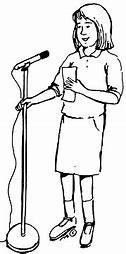
I was an awkward adolescent, tall for my age, chubby for years from taking allergy medication. But I was good at public speaking and won elocution contests even in elementary school. The awards kind of made up for the awkwardness. Then in high school, I became the go-to-choice for a city-wide oratorical competition. The local Jaycees sponsored the contest, and it was called the Voice of Democracy. My drama coach wrote the speech and I practiced for weeks until I could deliver the darned thing backwards. Unfortunately, I developed a sore throat just before the contest, and on the day of reckoning, I could barely manage a croak. Everyone, down to the school crossing guard, thought I would win. But I lost. Shamefully, I thought then.
The worst thing was coming back to school the next morning knowing I had let everybody down. I could feel the shame oozing from my pores and shimmering in my sweat for everyone to see. I had a best friend then. Her name was Mary Margaret. That morning she came up to me as I entered the school gate, and arm in arm we walked across the school lawn in front of everyone. No words were spoken, but her love communicated itself to me in a way that said, it was going to be okay. I turned fifteen that year, and you know what? I was old enough to realize it. Extraordinary love starts with the little things. At fifteen, I knew it had to be. That was God loving me through Mary Margaret.
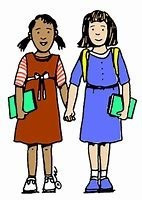
 I was a chemistry major in college, and one of my required math courses was integral calculus. I hardly know how I got there, since a prerequisite to the course was another mathematical swamp called differential calculus, which even now, is just quicksand in my memory. But there I was on the last day of the semester, the last person in the classroom, facing a blank test paper. It was like those numbers were Egyptian hieroglyphics and I was the baby Moses in a basket floating down the river to nowhere. I had taken the final exam but was unable to answer a single question! My left brain shut down! This was the last required course I needed for graduation and failing a final exam meant graduation wouldn’t happen.
I was a chemistry major in college, and one of my required math courses was integral calculus. I hardly know how I got there, since a prerequisite to the course was another mathematical swamp called differential calculus, which even now, is just quicksand in my memory. But there I was on the last day of the semester, the last person in the classroom, facing a blank test paper. It was like those numbers were Egyptian hieroglyphics and I was the baby Moses in a basket floating down the river to nowhere. I had taken the final exam but was unable to answer a single question! My left brain shut down! This was the last required course I needed for graduation and failing a final exam meant graduation wouldn’t happen.
Double click here to edit and add your own text.
 T In the most unlikely occurrence, however, I was saved from flunking the course by the very person I feared, my math professor, Angelica. Well, Miss Angelica, who had the worst reputation for smashing the hopes of chemistry majors, took my paper gently and said “Come back tomorrow and retake the test.” I did come back, and I passed it, barely, but I did, and I graduated that year. Why did she do it, for me? Pity maybe? The memory of a teacher who had treated her well? Love for a fellow human being? What? I’m convinced, that was God’s love for me, and it worked through Miss Angelica the way it did with my grandmother, my kindergarten classmate Henrietta, and my friend Mary Margaret. I know, you’re probably shaking your head, and saying, a math test? What’s so great about that? Well, if you’re not a math major, and you’ve attempted to decipher integral calculus at some point, you know what I mean. Here’s where I really appreciate the term ‘almighty’ for God.
T In the most unlikely occurrence, however, I was saved from flunking the course by the very person I feared, my math professor, Angelica. Well, Miss Angelica, who had the worst reputation for smashing the hopes of chemistry majors, took my paper gently and said “Come back tomorrow and retake the test.” I did come back, and I passed it, barely, but I did, and I graduated that year. Why did she do it, for me? Pity maybe? The memory of a teacher who had treated her well? Love for a fellow human being? What? I’m convinced, that was God’s love for me, and it worked through Miss Angelica the way it did with my grandmother, my kindergarten classmate Henrietta, and my friend Mary Margaret. I know, you’re probably shaking your head, and saying, a math test? What’s so great about that? Well, if you’re not a math major, and you’ve attempted to decipher integral calculus at some point, you know what I mean. Here’s where I really appreciate the term ‘almighty’ for God.
 The University of Santo Tomas (UST) is the oldest tertiary educational institution in Asia. It is a private Roman Catholic research university and one of the largest Catholic universities in the world. It is run by the Order of Preachers (OP), and has the unqualified distinction of being the only university that has been visited by three popes four times. I’ll tell you what, though, they must have come to visit in the dry season. Because, in spite of its stellar reputation, UST, unfortunately for its students and faculty, sits in the center of downtown Manila, which, I swear, is below the flood plain! Every rainy season, España Boulevard, which used to be one of the city’s main streets, (and along which UST’s 200-year-old earthquake-proof buildings stand), becomes flooded.
The University of Santo Tomas (UST) is the oldest tertiary educational institution in Asia. It is a private Roman Catholic research university and one of the largest Catholic universities in the world. It is run by the Order of Preachers (OP), and has the unqualified distinction of being the only university that has been visited by three popes four times. I’ll tell you what, though, they must have come to visit in the dry season. Because, in spite of its stellar reputation, UST, unfortunately for its students and faculty, sits in the center of downtown Manila, which, I swear, is below the flood plain! Every rainy season, España Boulevard, which used to be one of the city’s main streets, (and along which UST’s 200-year-old earthquake-proof buildings stand), becomes flooded.
edit and add your own text.
I was a chemistry teacher at the university’s Faculty of Engineering for six years. School starts in June here, which is also the start of the rainy is paragraph text. Double click here to edit and add your own text.
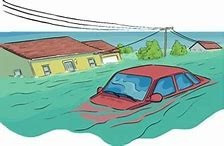
T I was a chemistry teacher at the university’s Faculty of Engineering for six years. School starts in June here, which is also the start of the rainy season. On the first month of my first year as a faculty member, a category 4 typhoon hit Manila causing massive flooding. The streets surrounding the university were flooded and I was stranded there along with half the school population. I had never been a student at this university, you understand. I went to the state university which is north of the city center, and free from flooding. How bad can this be, I thought? There were probably a few inches of water on the street, a foot at most. I was driving an Opel cadette which was known to perform well under rainy conditions. What the heck, I decided to drive home anyway in spite of the warnings. As soon as I exited the school driveway onto España street, I knew I had made a really bad mistake. Water was at least 3 feet deep, and it was moving like a sea. The water had submerged my wheels and I knew it would soon reach the floor. My engine stopped and I was swaying there in a panic.
This is Out of nowhere, it seemed, a group of about eight young men appeared beside my car. They seemed to be enjoying themselves playing in the water. And they proceeded to lift or push my car forward so that in a few minutes I found myself on higher ground out of the flood waters. I was so stunned I forgot to say thank you. But they were gone. As unlikely as it sounds, my engine started and I drove myself home. What are the chances of this happening? One in a hundred? A thousand maybe?
paragraph text. Double click here to edit and add your own text.
 I lived in Pakistan for a couple of years. My husband was on an oil field assignment there, and we were billeted in two rooms at the Sheraton hotel in Karachi for nine months. Wealthy Arab hunters came during the fall months for the falcon hunting season. They kept the falcons and their handlers in separate hotel rooms, and although it all sounds like an exciting thing to be around, I’m not really a bird person, and I was bored. Pakistan being an Islamic country, it was not proper for unescorted ladies to walk around outside, and my kids were in school all day.
I lived in Pakistan for a couple of years. My husband was on an oil field assignment there, and we were billeted in two rooms at the Sheraton hotel in Karachi for nine months. Wealthy Arab hunters came during the fall months for the falcon hunting season. They kept the falcons and their handlers in separate hotel rooms, and although it all sounds like an exciting thing to be around, I’m not really a bird person, and I was bored. Pakistan being an Islamic country, it was not proper for unescorted ladies to walk around outside, and my kids were in school all day.
This is paragraph text. Double click here to edit and add your own text.
TThat was in the late 80s, and the internet hadn’t quite come of age yet, so I spent most mornings staring at the chickens on my window sill. It was quite gruesome actually. Black hawks which number in the hundreds of thousands in Karachi are birds of prey like falcons, and have a diet of live chicken, chicks actually, which they dive for and bring to the high window ledges of the Sheraton, among other places. That kept my boredom to an acceptable level. Some afternoons, I would join my husband at the Karachi Boat Club for a drink. The Club’s veranda fronted the Arabian Sea, and sunset was quite pleasant there. But I had no friends. I was lonely.
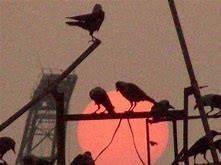
This is paragraph text. Double click here to edit and add your own text.
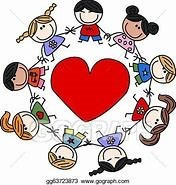
Out of the blue one morning, I got a call from reception saying a woman was waiting downstairs for me. Her name was Marylou. She had heard there was a foreign lady staying at the Sheraton, and she thought I might want company. We became fast friends. Marylou was a Filipina married to John, an American working for the USIS (United States Information Service). She had a part time job, I forget now for what institution. Marylou and John had lived in Karachi for two years, and I knew she was a busy person. What made her reach out to me? It was that love thing again. Really, it was. Our friendship eventually led to the forming of a group we called the ASEAN Women and Friends, where expat wives helped each other fight loneliness. I finally had the fellowship I needed, and so I gave up falcon hunting. By the time I left Karachi, there were 30 ladies in the group..
 My husband worked for an American oil company, and we were posted to different places around the world including the company headquarters in Bartlesville, Oklahoma. Bartlesville was what it was, a company town with the CEO and his wife at the top of the business and social ladders, and the rest of us populating the hierarchy below, depending on our husband’s position in the company. I realized from the start that I was an outsider, being a new comer and a foreigner to boot. So, I pretty much kept to myself, which I realized later, wasn’t the smart thing to do.
My husband worked for an American oil company, and we were posted to different places around the world including the company headquarters in Bartlesville, Oklahoma. Bartlesville was what it was, a company town with the CEO and his wife at the top of the business and social ladders, and the rest of us populating the hierarchy below, depending on our husband’s position in the company. I realized from the start that I was an outsider, being a new comer and a foreigner to boot. So, I pretty much kept to myself, which I realized later, wasn’t the smart thing to do.
This is paragraph text. Double click here to edit and add your own text.
This is pThe U.S. was for me, a planet away from what my life had been like in Asia, where I had my family next door, servants to do my bidding, a humid
tropical climate, and the sea everywhere you looked.
Oklahoma was desert-hot in the summer and frigid in the winter—
with freezing rain on the trees, and black ice on the roads. The first
winter was bearable but the second winter, I developed a throat dryness
that kept me gasping for air (from the indoor heat I wasn’t used to), and a network of tiny cuts on both my hands from washing dishes (and not using lotion to keep them from drying out). My childhood panic attacks returned with an intensity that landed me in the emergency room thinking I was having a heart attack (the nurse there gave me a brown paper bag and told me to breathe in and out of it, to re-stabilize the carbon dioxide in my lungs). In addition to this sorry list of events, I skidded on the icy road driving to the doctor one day, and landed in a ditch. But all this is just background to my real story.
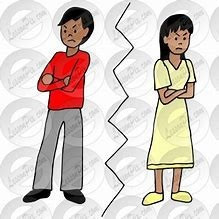
Because of my inability to adjust to living in America, and the added pressure of a new work load on my husband, we were constantly arguing. One evening after a particularly vicious fight, I made up my mind to see a lawyer the next day. I called a friend for the office address of a divorce lawyer in Tulsa, the big city which was a 45-minute drive from Bartlesville. I stayed up half the night getting all my paper work together, determined to seek an escape from my marriage, from this whites-only company town, and from this searing winter desert called Oklahoma. Next morning, I waited for my husband to leave before starting my drive to Tulsa. I brought a portfolio of everything I thought I would need to file for divorce, and drove straight to the lawyer’s office. I got there before nine a.m. His offices were shut. The sign on the door said it was closed indefinitely due to illness in the family. Obviously, I didn’t have an alternate lawyer in mind. I headed back home. It was like someone had thrown cold water on my face, holy water, I guess. Because I realized almost instantly that divorce wasn’t in God’s plan for me.
 I was 42 years old. I had given up my career as a chemistry teacher back home, for a gypsy life, roaming the world as an expat wife. After eleven years as a stay-at-home person though, chemistry had become as distant as a mirage in the Oklahoma desert. I was lost in that desert, and I needed to save myself. I had to find something to do, other than wait for my kids to get home every day. The University of Oklahoma had a satellite in Tulsa: evening and week-end classes towards a graduate degree in human relations. My undergraduate degree was in biochemistry though, which, I figured, eliminated me from the pack (#1 hurdle). But I thought I’d call anyway just to make sure. It turned out you could have an undergraduate degree in another field, they would simply have to evaluate your college transcripts. Ok, I would have to either find a copy of my transcripts at home or send off to my university for them. (#2 hurdle). I had finished college 21 years ago; hopefully they had kept the records because I didn’t. Well, they hadn’t either. Apparently, many of the original school records had been destroyed in a fire (#3 hurdle). I was about to give up on that effort when I got an email from the school registrar that my transcript was in fact among the few that had been saved from the fire. Hallelujah! I obtained a certified copy and sent it to OU by next-day mail.
I was 42 years old. I had given up my career as a chemistry teacher back home, for a gypsy life, roaming the world as an expat wife. After eleven years as a stay-at-home person though, chemistry had become as distant as a mirage in the Oklahoma desert. I was lost in that desert, and I needed to save myself. I had to find something to do, other than wait for my kids to get home every day. The University of Oklahoma had a satellite in Tulsa: evening and week-end classes towards a graduate degree in human relations. My undergraduate degree was in biochemistry though, which, I figured, eliminated me from the pack (#1 hurdle). But I thought I’d call anyway just to make sure. It turned out you could have an undergraduate degree in another field, they would simply have to evaluate your college transcripts. Ok, I would have to either find a copy of my transcripts at home or send off to my university for them. (#2 hurdle). I had finished college 21 years ago; hopefully they had kept the records because I didn’t. Well, they hadn’t either. Apparently, many of the original school records had been destroyed in a fire (#3 hurdle). I was about to give up on that effort when I got an email from the school registrar that my transcript was in fact among the few that had been saved from the fire. Hallelujah! I obtained a certified copy and sent it to OU by next-day mail.
This is paragraph text. Double click here to edit and add your own text.
T About a week later I received a rejection letter which said they didn’t think the program would be a fit for me (#4 hurdle). I kind of expected that, but I clung to what they said about the program not being a fit. What if I could convince them otherwise? I found the name of the chairman of OU’s Department of Human Relations. It was Dr. George Henderson. I made an appointment to see him, and off I went to OU’s main campus in Norman, Oklahoma.
 Dr. Henderson was a slight, mild mannered man of about sixty. He very quietly, but determinedly, explained to me why he thought my background didn’t fit the program requirements. If I was willing, however, to enroll for a bachelor’s degree in human relations (#5 hurdle), they would certainly consider me for the masters program after I completed that. No, I said I wasn’t willing to do another undergraduate degree, and would he please reconsider? Give me a good reason why I should, he said. So I told him as eloquently as I could, why my scientific background had prepared me for rigorous, disciplined study, how my having lived all over the world had given me an intelligent awareness of other cultures, and how I had a passionate determination to complete the program with flying colors. My spiel ended with a give-me-a-chance-and-I’ll-prove-you-wrong. I knew I wasn’t qualified for admission. Dr. Henderson knew it, and he knew I knew it. But I got in. What changed his mind? I have a hunch, well, more than a hunch, actually.
Dr. Henderson was a slight, mild mannered man of about sixty. He very quietly, but determinedly, explained to me why he thought my background didn’t fit the program requirements. If I was willing, however, to enroll for a bachelor’s degree in human relations (#5 hurdle), they would certainly consider me for the masters program after I completed that. No, I said I wasn’t willing to do another undergraduate degree, and would he please reconsider? Give me a good reason why I should, he said. So I told him as eloquently as I could, why my scientific background had prepared me for rigorous, disciplined study, how my having lived all over the world had given me an intelligent awareness of other cultures, and how I had a passionate determination to complete the program with flying colors. My spiel ended with a give-me-a-chance-and-I’ll-prove-you-wrong. I knew I wasn’t qualified for admission. Dr. Henderson knew it, and he knew I knew it. But I got in. What changed his mind? I have a hunch, well, more than a hunch, actually.
This is paragraph text. Double click here to edit and add your own text.
ThiThere was one last thing that stood in my way—a two-week residency at the Norman campus before I could graduate (#6 hurdle). But I talked to my family and they agreed I deserved the chance. I graduated with a 4.0 average and my husband came to watch me walk up the stage in my cap and gown. I eventually found a job as Parenting Coordinator for Youth Services of Tulsa, a private non-profit that staffed a youth shelter for runaways, and conducted support programs for parents. I loved the job.own text.
 China was the most interesting place I’d ever lived in. It had a 5000-year-old culture that defied one’s best efforts at learning it all, but if you at least tried, there were many unique rewards. My family lived in Beijing during a most significant period in its modern history 1995-2003. During this eight-year span, Hong Kong was returned to China, Macao was returned to China, Beijing won its bid to host the Olympics, and the country underwent its most powerful economic transformations. You could be walking down a quiet hutong (alley) one day, and the following week almost, there’d be a 20-story building up. Beijing was at the forefront of the world-wide technological revolution in business, science, and the arts.
China was the most interesting place I’d ever lived in. It had a 5000-year-old culture that defied one’s best efforts at learning it all, but if you at least tried, there were many unique rewards. My family lived in Beijing during a most significant period in its modern history 1995-2003. During this eight-year span, Hong Kong was returned to China, Macao was returned to China, Beijing won its bid to host the Olympics, and the country underwent its most powerful economic transformations. You could be walking down a quiet hutong (alley) one day, and the following week almost, there’d be a 20-story building up. Beijing was at the forefront of the world-wide technological revolution in business, science, and the arts.
This is paragraph text. Double click here to edit and add your own text.
Th There were very few employment opportunities for expat wives, however. I had a small group of friends and we spent our days combing the many street markets for export over-runs, eating at little Chinese food places that had English menus, and clandestinely buying contraband DVDs for little more than 40 US cents each. At that time the Chinese authorities turned a blind eye towards the piracy that was rampant in the black market, so we took advantage by hoarding DVDs. You can only buy so many though. After a while, they become redundant to say the least. After about a year of market hopping, I was at my wits’ end. We were generally excluded from our husband’s work lives. Chinese officials never brought their wives to dinner, meetings, etc. so our husbands couldn’t bring theirs. So, like the DVDs, we soon became redundant too.
 Enter Lee Laoshi. Teacher Lee was about 75 years old. She was a retired teacher of English-As-a-Foreign-Language. Lee had survived the “Ten Year Catastrophe” in China, Chairman Mao’s cultural revolution that involved apprehending China’s educated elite and flinging them to remote rural areas to rejoin the peasantry. Lee had been assigned to the harvesting and cleaning of potatoes. Her husband a professor of physics at the prestigious Xin Hua University in Peking (as Beijing was then known), had been sent to a pig farm. By the time I met Lee, though, it had been many years since Mao’s red guards had gone home and life was back to normal. Over lunch one day, Lee announced joyfully that she had found me a job at China’s Foreign Affairs College as a professor of Cross Cultural Communication. I would be teaching China’s future diplomats.
Enter Lee Laoshi. Teacher Lee was about 75 years old. She was a retired teacher of English-As-a-Foreign-Language. Lee had survived the “Ten Year Catastrophe” in China, Chairman Mao’s cultural revolution that involved apprehending China’s educated elite and flinging them to remote rural areas to rejoin the peasantry. Lee had been assigned to the harvesting and cleaning of potatoes. Her husband a professor of physics at the prestigious Xin Hua University in Peking (as Beijing was then known), had been sent to a pig farm. By the time I met Lee, though, it had been many years since Mao’s red guards had gone home and life was back to normal. Over lunch one day, Lee announced joyfully that she had found me a job at China’s Foreign Affairs College as a professor of Cross Cultural Communication. I would be teaching China’s future diplomats.
This is paragraph text. Double click here to edit and add your own text.
T The two years I spent at the Foreign Affairs College in Beijing were a series of pleasant challenges. The students, most of them offspring of China’s one-child policy, were a delightful if rowdy bunch, and I learned as much from them as they did from me. I even made another friend, Katherine, an American Fulbright professor whose last name was coincidentally also Lee. She and I ate lunch together outside in the summertime, and inside in the winter time where we shared a space heater, until the school turned on its heat in early December. These two Lee ladies found me when I most needed them. I rather believe they were sent, though.
But life became unbearably difficult. Even as I tell it, I am heavy with grief. I lost one of my sons to schizophrenia at 15, and then to suicide at 27, on the week of 9/11. Airports in the US closed down after the Twin Towers fell. We couldn’t bring his body back to the Philippines, so we buried him in Houston where my other son also lived. An absolute darkness covered me and refused to lift. I said to myself it was time to die. It was fall, I thought, the perfect time for dying. I would drive to the Forest Park cemetery every morning and sit under an oak tree watching his grave. I spent hours there just weeping. I remembered him as a baby, all bald and funny. When he first started walking and talking. Kindergarten at the Fort Bend Elementary School. Riding his bike at 10, a shiny smile on his face, the world a bowl of happiness. At 12 he was already a heartthrob, smart, shy smile, sparkling eyes, self-effacing, girl-crush material, brilliant his teachers said, 99th percentile.
My first indication that something might be wrong was when he started becoming obsessive about homework. He would spend sleepless nights going over answers again and again, making doubly, triply sure he was right. A project had to be perfectly executed or otherwise redone until it shone with a special light only he saw. He started using drugs, marijuana first, then LSD or acid, which became his drug of choice. We tried everything, pleading with him, tough love, rehab, out- patient therapy, rehab again. Nothing worked. At 15 he was diagnosed with paranoid schizophrenia and the next 12 years were truly a hell on earth for him and for us, his family.
This is paragraph text. Double click here to edit and add your own text.
Eduardo Carlos

My first indication that something might be wrong was when he started becoming obsessive about homework. He would spend sleepless nights going over answers again and again, making doubly, triply sure he was right. A project had to be perfectly executed or otherwise redone until it shone with a special light only he saw. He started using drugs, marijuana first, then LSD or acid, which became his drug of choice. We tried everything, pleading with him, tough love, rehab, out- patient therapy, rehab again. Nothing worked. At 15 he was diagnosed with paranoid schizophrenia and the next twelve years were truly a hell on earth, for him and for us, his family. I became an expert on schizophrenia, learning first that it is most possibly not just one disease, but a group of diseases. That there is no cure, simply control of its symptoms. That it is a thinking disorder that affects all decision making. That auditory and visual hallucinations are inevitable. That illegal drug use may indicate the patient is trying to self-medicate. That a hit-or-miss cocktail of psychotropic drugs is the only way to deal with this tragic fate. That schizophrenics have a 50% greater chance of suicide than the general population, an 80% chance when the medications seem to be working and they realize just how sick they are. That autopsies of the brains of schizophrenics show the existence of lesions, but whether the lesions cause the schizophrenia or whether schizophrenia causes the lesions, is not known. My son took his own life on September 3, 2001 by jumping off the 42nd floor of the Hyatt hotel in Houston.
I drove to the cemetery every day for weeks. Rain or shine. After the cemetery, I would go home and weep there. I shut my mind and heart to anything good, spoke to no one, uttered no prayer. I knew it was just a matter of time before I fell into an abyss that was already waiting. And then… and then, one cold evening in November, as I crouched on my floor trembling with grief, something happened that would change my life. It happened in that one-bedroom apartment on Garretson Lane in Houston, Texas, twenty miles from the cemetery where my son was buried. God simply picked me up and held me in an embrace so completely loving, I could not weep.
This is paragraph text. Double click here to edit and add your own text.
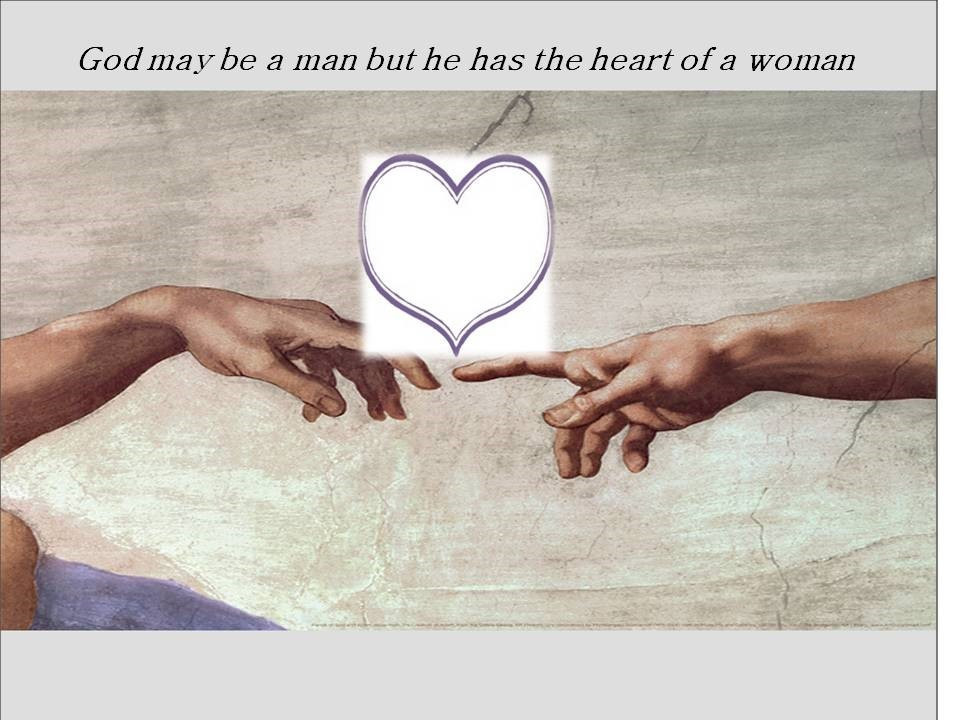 Did He actually pick me up? Did I feel His arms around me? I don’t know how to answer that, but in my mind I heard His voice: “ With every breath you take, you will feel my love course through your body.” And it did. Why? How? How…in… heaven’s… name… did…it…happen??? All I can say is that I felt it, and that love, that power, that force? It would take away the horrible pain of grief, again and again, day after day, in that tiny apartment in Houston. Until I could be calm again, alive again. Divine consolation, it is apparently called, when God just comes to comfort you directly, no agents this time, just Himself with that… that big, big love that is the greatest force in heaven and on earth. I call it extraordinary love. And you can take my word for it because it happened to me. God may be a man, but he has the heart of a woman.
Did He actually pick me up? Did I feel His arms around me? I don’t know how to answer that, but in my mind I heard His voice: “ With every breath you take, you will feel my love course through your body.” And it did. Why? How? How…in… heaven’s… name… did…it…happen??? All I can say is that I felt it, and that love, that power, that force? It would take away the horrible pain of grief, again and again, day after day, in that tiny apartment in Houston. Until I could be calm again, alive again. Divine consolation, it is apparently called, when God just comes to comfort you directly, no agents this time, just Himself with that… that big, big love that is the greatest force in heaven and on earth. I call it extraordinary love. And you can take my word for it because it happened to me. God may be a man, but he has the heart of a woman.
n text.
There’s more. My first granddaughter was born exactly nine months after my son died. I would often baby sit. Her coming was an enchanting ray of sunshine after the darkness of loss. She came regularly for visits to my apartment, and that one day, her parents were going to be gone for about four hours, so we got settled in for some good grandma time. She was two then, a curious toddler with energy bubbling over. I stepped into my walk-in closet to put away my shoes, and she closed the door behind me. It locked. From the outside. My heart sank. I called to her, asked her to open the door, but she couldn’t, didn’t know how. She started to cry, and then scream, and sob, and scream again. I was locked in the closet of a townhome, sound proofed for comfort, no cell phone, nothing; a two-year-old, totally unreachable outside the locked closet. Could there be a better cause for panic? I looked around me, only clothes and shoes and hats. Nothing hard, no metal or wood, not even plastic.
I am, by western standards, a small woman. I am not physically strong and not even remotely athletic. But I did remember to pray. I said to God. HELP ME! And without ever having kicked anything in my life before, I flying kicked that door! And you know what? It gave! And then I punched a hole in that door with my bare hands, big enough so I could reach the door knob and open the door! And take that crying baby in my arms. God’s love is the greatest power in heaven and on earth. And even if you just remember to say it? You will get what you want.